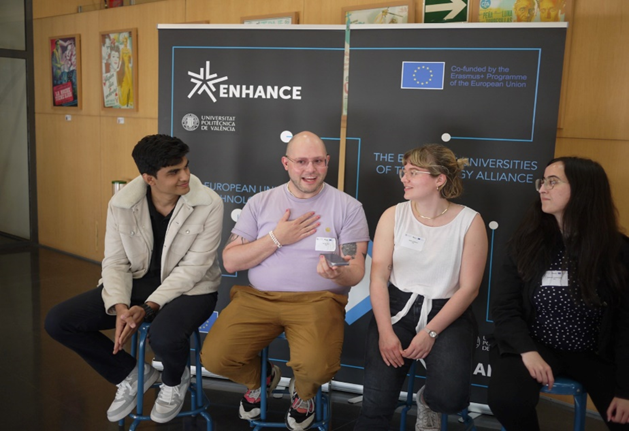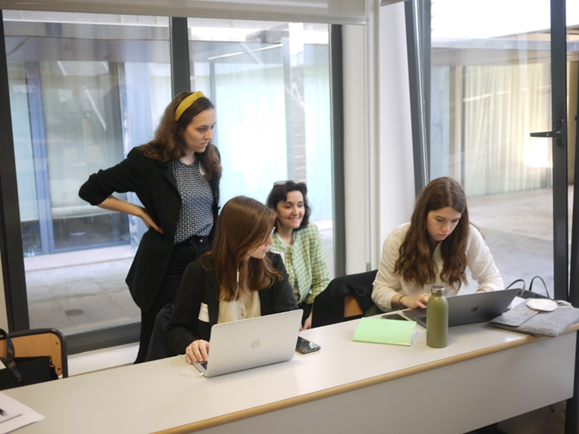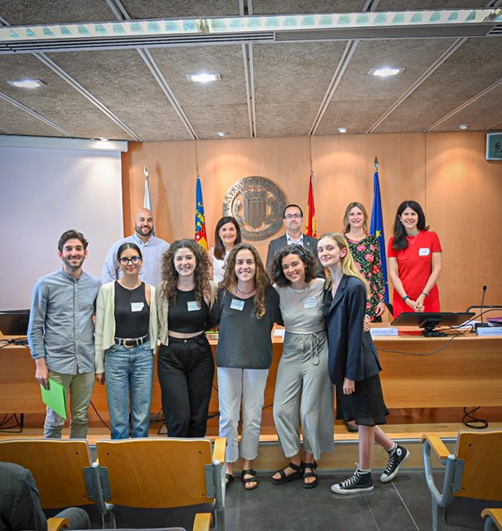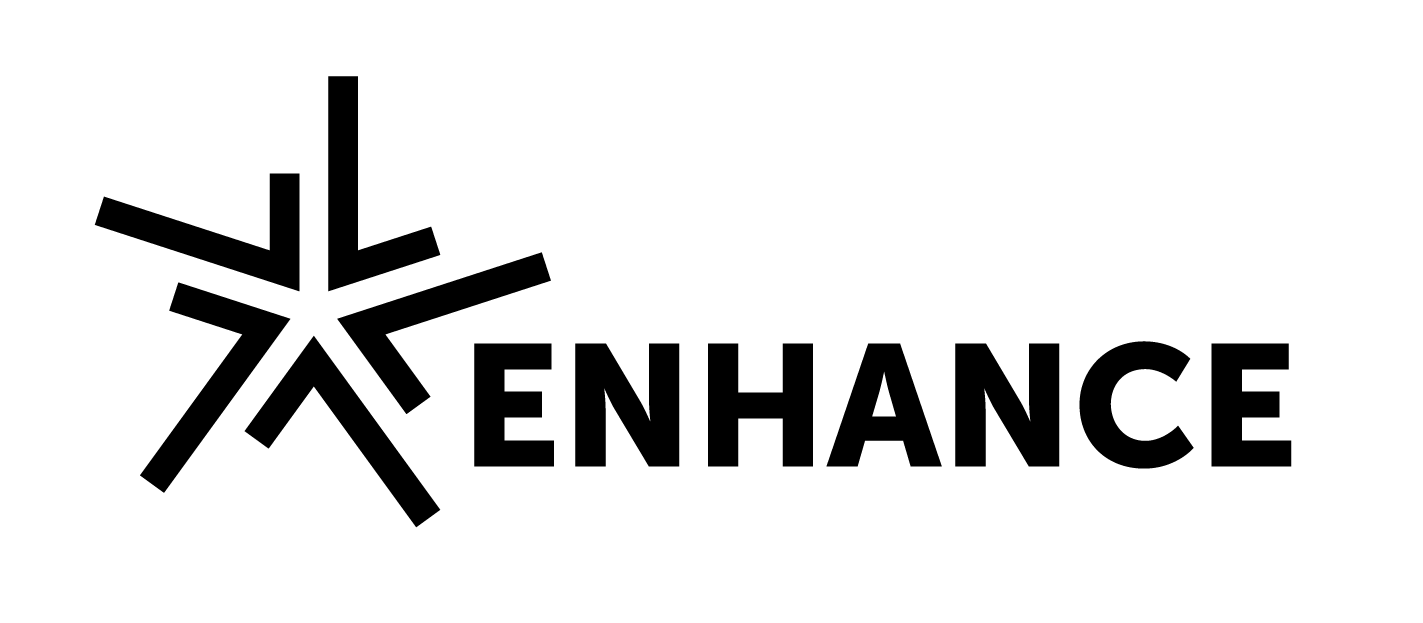The field of artificial intelligence (AI) is one of the most vibrant research and innovation topics in recent years. As an Alliance of leading Universities of Technology, ENHANCE unites a lot of technical expertise, which we aim to take advantage of through our Incubator Challenge. Together with you, we want to find out how typical AI applications like virtual assistants, chatbots, content moderation systems, image recognition and processing algorithms or security concepts could be used to support the administration or teaching and learning at Higher Education Institutions.
Challenge 2, Team 1

Inefficiencies in the admission process and student dropout are costly flaws both economically and socially 7,401,702,280 €. Is the economic cost of dropouts just from a sample of six nations?
Our vision:
- Create a seamless journey from the admission to completion of training
- Optimizing all processes avoiding premature departures and tuning the selection process:
- Refining retention strategies
- Using AI enable to create of dynamic student’s profiling and life cycle assessment
- Make Universities more inclusive and impactful on society.
The solution:
- Create a pool of heterogeneous representatives so as to create a more inclusive admission process
- Predict the risk of dropout and create a set of dropout prevention actions:
- Using retention strategies
- Ground decisions on data
- Design an agile and streamlined development process, from an MVP to a scaled solution, making it standardised and widely adopted.
Challenge 2, Team 9

Atmosia
Atmosia provides a solution for decision-makers to tackle the effects of air pollution.
Problem:
Most of the global deaths are attributed to outdoor air pollution. Is one of the world´s largest health and environmental problems.
Solution:
A platform allows decision-makers to be more aware of their surroundings and make forward-looking choices:
“AirQ” is a powerful concept that shows how university administration can have control over the unhealthy daily experience to improve the environment.
Challenge 2, Team 3

Freeroom:
- Non-optimised spaces: Students struggle to find good spaces on campus that fits their needs
- Stressful environment: Overcrowded and noisy spaces create an uncomfortable working and studying environment
- Lacking communication: No way to give feedback about the condition of university infrastructure
Solutions:
- Network of sensors
- To gather data on how many people are in a room
- To collect noise, light, and environmental data in rooms
- Our first working prototype
- ML & data analysis
- To analyze data and accurately calculate the influence of environmental quality on stress level
- For giving insight to professors and school administration about room lessons occupancy conditions, infrastructure problems report
- Web & app interface
- Builded from the ground up to be scalable for each university
- For every device. Everywhere.
Impact:
- Better usage of campus spaces, and better knowledge of available places to study
- Stress reduced, better studying conditions, better results
- Quick intervention on infrastructure problems or damages
- Saving money and time resources to reallocate lessons rooms according to occupancy data
Challenge 1, Team 8

Enhance Diversity Chatbot: For Diversity, against Discrimination
Chatbot purposes:
Listening to and empowering users
Providing information on support services, groups and university offices
Increasing awareness of discrimination by quantifying incidents and calling out authorities
Why are we doing this?
Real quantifiable data and statements
Anonymous, easy to use, easy to adapt service
Low stakes point of contact for incidents, even acts of microaggression
Create a domino effect and commit to changes at an organizational level
Challenge 1, Team 9

AJI AUDIT is a rating system that assesses university performances according to Universal Design principles. The tool quality is based on spaces on objective terms of physical, measurable sensory, and cognitive indicators to evaluate the quality of spaces. The tool aims to support decision-makers through effective design strategies to improve inclusion of both outdoor and indoor spaces in universities. The university´s performance that can be improved are:
Usability
Functionality
Safety and security
Wayfinding
Understanding
Environmental factors
Wellbeing
Social inclusion
The tool was developed at Politecnico di Milano and applied in the healthcare facilities field, now the system aims to be adopted in University environments to enhance their accessibility and inclusion:
To digitize the rating system by developing a digital platform
To automatize the data collection through the BIM (Building Information Modeling) software
Challenge 1, Team 6

“Inclusive Design for Students with Disabilities”. It aims to create physical support for people with reduced mobility, providing them with the necessary material for their adaptation and comfort in the classroom.
The project connects student projects from all universities with real users with mobility disabilities (and other types of disabilities in the future). This will create physical support for people with reduced mobility, providing them with the necessary material for their adaptation and comfort in the classrooms.
Highlights:
Promote the creation of different basic products to make an easier daily life at university for people with disabilities.
Through design, challenges encourage people to create a new product with the purpose of helping people with disabilities.
A Hub within the university web page where people can easily find these solutions and also where other universities can collaborate to promote this movement globally.
Objectives:
Focus on people with reduced mobility and especially, their needs to be comfortable in the university environment.
Provide quality education with products that contribute to the education of people with reduced mobility who cannot afford it.
Create a constant network for creation and feedback with users from other universities.
Make this program very visible on the university’s web pages and on campus.


